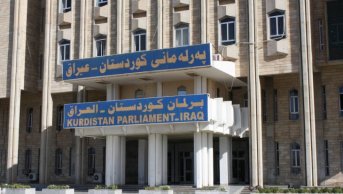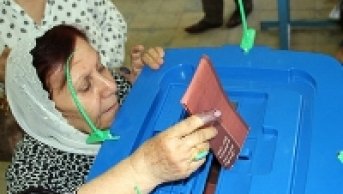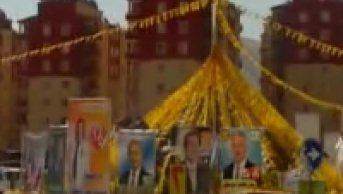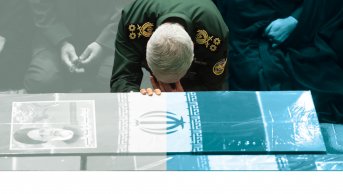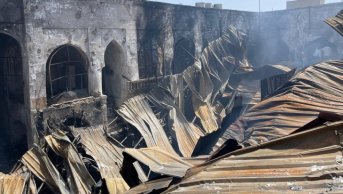Is a Presidential Term Without Barzani Possible in Northern Iraq?
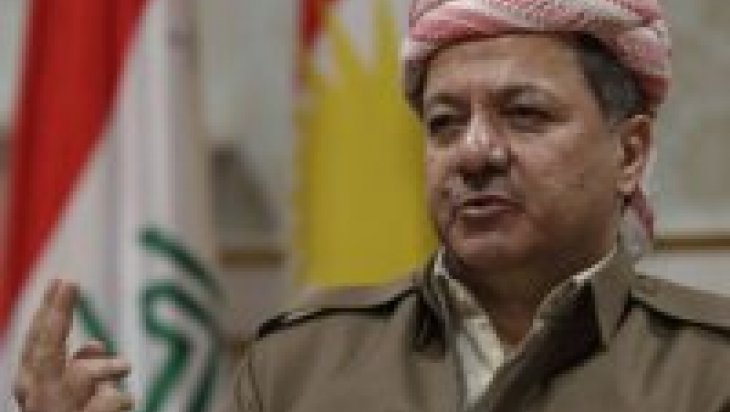
While many people have lately focused on the Provincial Council elections to be held in Iraq on 20 April 2013, North Iraq has been quietly witnessing very important days. Most of the news on North Iraq that has been reflected on Turkish media are about the energy relations between Turkey and KRG or about the role of Iraqi Kurds they play during the democratization and peace process in Turkey. However, the internal political developments taking place in KRG in the last 3 months make us think that the region is drifting into a new political period.
As can be remembered, the last elections in KRG took place on 25 July 2009. It has been 4 years since the aforesaid election was held. It comes to mean that 2013 is an election year for Iraqi Kurds as well. Even though IKR Provincial Council elections have been on the agenda each year since 2009 and the elections are postponed each time without concrete reasons, this time the election agenda is quite realistic. The process which gained speed with the efforts of opposition parties in North Iraq in early 2013 was finally concluded with the statement of KRG President Massoud Barzani who announced that parliamentary and presidential elections will be held together on 21 September 2013. The elections to be held in 5 months might be the most critical election in terms of the political history of KRG.
The factors that make this election different from others can be listed as follows:
1- Creating a stable political environment for Kurds after the invasion of Iraq, and the KDP-PUK coalition which is the backbone of the economic golden age came to an end. The coalition between the two political parties, which focused on the priorities of Kurds in Iraq by leaving their historical divisions and the disputes within the party aside, had actually received consecutive blows since 2009. However, both parties maintained their cooperation, which they considered the safest way to stay in power, instead of bringing the problems among themselves into the forefront. But it has been observed more clearly after the emergence health problems of Jalal Talabani that it is not only KDP but also PUK which do not want to maintain the coalition anymore. As can be understood from the statements of senior officials of both political parties recently, KDP and PUK will run for elections as different lists or coalitions. And this comes to mean that political equation in the region will radically change.
2- The KDP-PUK coalition is not a simple (Massoud) Barzani-(Jalal) Talabani coalition. Both leaders have achieved to maintain their cooperation by taking their strategic interests into consideration sometimes despite their own parties and party grassroots. However, despite the fact that they have run for all elections held in Iraq in common lists since 2005, neither grassroots nor other groups within the political parties have allied. Of course, today there are no dynamics which create a similar armed conflict that took place between the two political parties between 1994-1998. Still, it cannot be suggested that the influence of the past has completely vanished. However, today what creates the difference between political parties is not the traumatic effect of the conflicts that took place 15 years ago. Today, the main problem is differences of opinion and power relations on KRG government and sharing the power. The power balance between KDP and PUK was clearly disturbed in favor of KDP, and PUK both lost the support of the people compared to previous years and also lost its grounds. However, for whatever the reason might be, it appears that the “strategic coalition” is over and both parties have been seeking to form a new model of relationship within the framework of new dynamics.
3- As the KDP-PUK coalition was broken, it is the first time in the short history of KRG that other political powers except for those two political parties now have the chance to designate the power. A straw poll that reflects political tendencies clearly and well has not yet been held in the region. Polls of all political parties by all means carry out some works to evaluate their position, and to set new strategies. But these figures are not known because it is not reflected on open sources. Still, considering the previous elections various studies we have carried out in the region for a long time, we can suggest that the most powerful political parties in the region are listed respectively as follows: KDP, Gorran, PUK, KIU, KIC and others. Although it would not be right to make conclusive comments on general power balance also due tot he lack of a clear straw poll, it would not be too difficult to estimate that KDP would be the winner if elections were held in the region. Still, it would not be wrong to suggest that KDP cannot receive more than 35-40% of votes on its own, and besides KDP would not be able to form government alone despite its advantage in 11-seat minority quota in KRG parliament. On the other hand, it would not be right to expect from other political parties to form a powerful coalition before the elections. Hence, it might be possible for political parties to separately run for elections and to form a coalition with or without KDP depending on the distribution of seats after the elections. The most important point that should not be forgotten in this process is the name to be designated as candidate prime minister, as well as the votes it will receive in the elections. It should not be forgotten that current Prime Minister Nachirvan Barzani is supported not only by the grassroots of his own party but also by the grassroots of other parties. So, as long as the candidate prime minister of KDP is Nachirvan Barzani, it would not be surprising for KDP to form a government again. But there are three points that should be underlined in this process: First of all, it should not be expected from another KDP politician except for Nachirvan Barzani to form a government. Secondly, in any case the period of coalition governments between KDP and declining PUK has come to an end. The political parties which are partners of the government would take what they want through much tougher bargains. Formation of three- or even four-party coalitions might create a kind of coalition government that the region in KRG is not used to. Thirdly, the current balances make it possible to form a government without KDP. Even though it is difficult and risky for opposition parties to form a government without KDP, the possibility that the opposition, which has aimed to have an opportunity and to radically change political relations in the region for years, might use such an opportunity should not be ignored. PUK, which is believed to have lost its importance because of its weakening position, would play the most critical role at this point. Despite the fact that PUK has grown weaker compared to the past, it still has the key in designating whomever will form the government.
4- Perhaps the most important dimension of this election is the presidential election. It seems quite interesting that the election date was declared before the designation of legal infrastructure of presidential elections. As current discussions indicate, it is not certain yet whether the KRG President Massoud Barzani will be a candidate in presidential elections or not. Even though Massoud Barzani cannot be candidate in legal terms according to some opposition parties, KDP asserts the opposite. However, there is a possibility that Massoud Barzani may not be elected even if he were candidate. As a matter of fact, in case political parties except for KDP agreed on a common candidate, it would be highly likely for Massoud Barzani not to be elected. This situation might open a new period in KRG. In an environment where Talabani stays out of political balances due to his health condition, the choice of Massoud Barzani, who cannot hold presidency (because of not running for elections or losing the elections), on his own political future might be the turning point of democratization process of Iraqi Kurds. It might be early to see a term where both leaders do not play a major role in political life of Iraqi Kurds led by those two important leaders for the last 35 years. However, it is a fact that Iraqi Kurds will have to face sooner or later.

